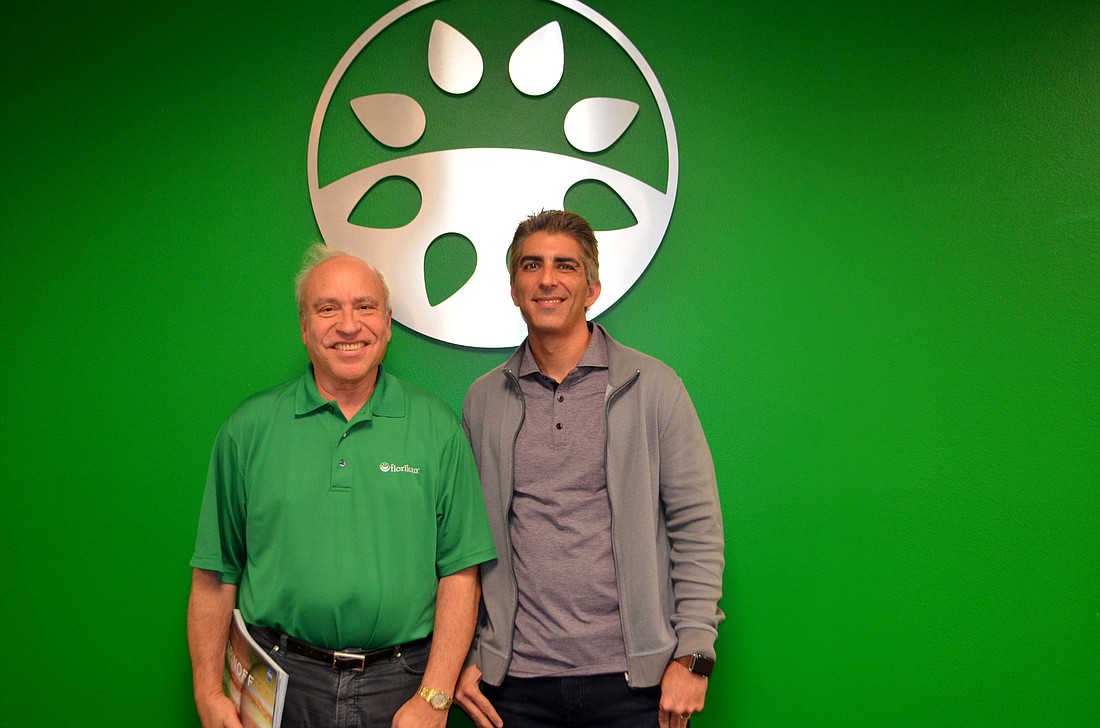- May 5, 2025
-
-
Loading

Loading

Sometimes, life has a way of coming full circle.
For Ed and Eric Rosenthal, it came in the way of an email. The father-son duo, founder, president and owner of Florikan ESA LLC, get a lot of emails through the company’s “Contact Us” page, most of which are top priority. However, a certain email made Eric Rosenthal take a second look, mostly because “NASA” was in the subject line.
That was in 2013, and eight years after their initial work with the national space agency.
So an email from NASA wasn’t exactly expected.
After winning best innovative product in the business category from the National Society of Professional Engineers in America in 2004, Florikan earned 40 hours of research with a federal agency.
The company chose to work with the Kennedy Space Center and its Space Alliance Technology Outreach Program. Together, they worked on polymer chemistry, and SATOP suggested Florikan try a space-age polymer that NASA was using.
Working with SATOP helped Florikan develop the plastic-like polymer it now uses to coat its controlled-release fertilizer.
Fast forward to today.
Ed Rosenthal and Florikan are being inducted into NASA’s Space Technology Hall of Fame. The induction ceremony is in April.
To truly understand how Florikan landed where it is today, it’s best to go back to its roots.
Ed Rosenthal grew up on a Canadian farm, but the last thing he wanted to do was go into agriculture. In 1971, he found himself working for a polymer company in Canada, where he learned the ins and outs of its manufacturing, injection and molding processes. When he and his wife, Betty, launched Florikan in 1982, they set out to help growers and farmers and make farming more efficient.
“I think that’s really our story,” said Ed Rosenthal, a Longboat Key resident. “That’s really the difference between us and just about any other company in agriculture. That’s really it.”
It took Florikan three years to perfect its controlled-release polymer-coated fertilizer. Once perfected, the fertilizer earned a U.S. patent.
In 2013, Eric received the email from NASA.
The agency’s Vegetable Production System, or Veggie system, asked Florikan to collaborate on growing vegetables on the International Space Station using Florikan’s product.
“They gave a family business an opportunity ... and we just did not forget that. When they asked us for help on NASA Veggie program, we’ve been very proud to pay it back,” Ed Rosenthal said.
The collaboration grew three crops of romaine lettuce and one crop of Tokyo Bekana cabbage. Next up are Red Robin tomatoes, which thrive in small spaces.
“Growing in space is hydroponics because you can’t have a big farm,” Ed Rosenthal said. “You don’t have space, land, soil. We had to come up with a special fertilizer.”
What it comes down to for the Rosenthals is really the idea of the American Dream.
As Ed Rosenthal puts it, NASA helped a private business perfect a technology that could be exported around the world, which in turn created a lot of jobs.
From its Hardee County plant to working with another family firm, Florikan is focused on helping schools and communities.
The Hershorin Schiff Community Day School in Sarasota uses the company’s controlled-release fertilizer in its garden.
The Pineview School in Osprey and Sweetgrass Farms in Sarasota have replica grow boxes, like the ones used in space, which feed data back to NASA.
The Rosenthals say their community connections and Florikan’s space-developed technology and commitment to NASA are part of the reason Ed Rosenthal and the company were nominated to NASA’s Space Technology Hall of Fame.
“Where else but in America could you have a family business end up getting help from NASA and getting inducted into the Space Technology Hall of Fame?” he said.